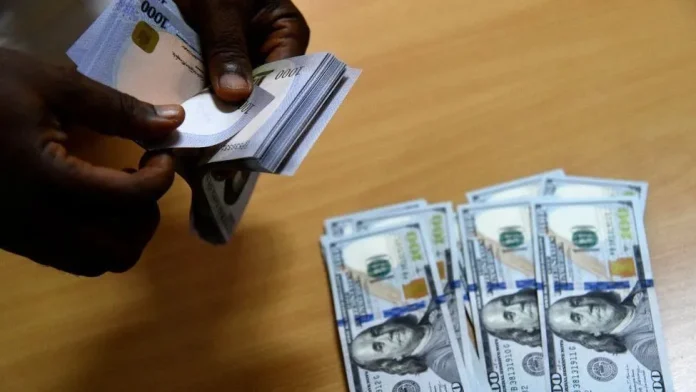As supply side pressure lessened, market participants in the investors’ and exporters’ foreign exchange window exchanged US dollars at N757.51. According to FMDQ data, the Naira strengthened versus the US dollar on Tuesday, trading at N757.51 in the Investors and Exporters window.
According to dealers’ notes, the Nigerian local currency gained 2.23 percent on Tuesday vs N774.78 when traded for the US dollar on Monday. The official FX rate fluctuation has been primarily volatile.
According to statistics from the over-the-counter FX market, the open indicative rate ended at N782.59 to the dollar on Tuesday. It was noticed that the highest spot exchange rate recorded during the day was N799.90 to the greenback.
During the day’s trade, the Naira fell as low as N700 to the dollar. On Tuesday, 45.98 million dollars were exchanged in the investors and exporters window. The official market faced fx supply constraints in July, delaying convergence with open market rates. The difference between the official and parallel markets has widened to N100 as users reported increased demand on the open market.
According to the July FMDQ FX report, inflows into the Investors and Exporters window increased by around 66%. According to Cordros Capital Limited’s analysis, FX inflows from local investors fell 60.6% to US$561.00 million in July from US$1.42 billion in June due to a slowdown across all local categories.
It was noted that supply from the CBN fell 70.0% in the month, Individual supply was 51.2% below the record level seen in June and non-bank corporates were down by 65.6% while Exporters receipts declined 63.9%.
In the same vein, inflows from foreign sources remained underwhelming, decelerating by 86.5% in July to US$47.00 million from US$347.30 million recorded in June as foreign investors remained cautious about returning in their droves.
The Nigerian authorities have used FX and import restrictions extensively to manage external pressures in recent years, resulting in severe foreign currency (FCY) shortages plaguing the private sector.
In its update, Fitch Ratings said such shortages have delayed Nigerian banks sourcing foreign currency from the CBN on behalf of importing customers to meet their trade-finance obligations to correspondent banks.
This has led to significant delays in Nigerian banks providing foreign currency to international correspondent banks, the global rating agency said. Nigerian banks have responded by encouraging customers to source forex themselves, and by utilising their own resources as an interim measure to close letters of credit pending the receipt of foreign currency from the CBN.
A market-determined exchange rate and the market-friendly reforms being pursued are both conducive to capital inflows. This should help to reduce FCY shortages and the difficulties banks and importers are experiencing in conducting trade-finance business. However, the extent and timing of such benefits remain to be seen.













